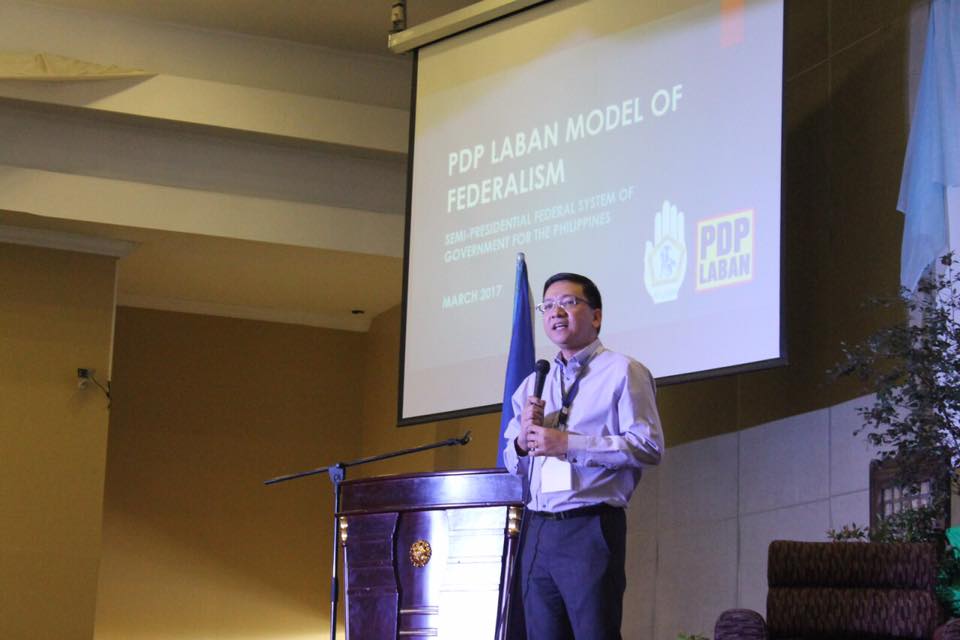News
Critics of federalism see monsters when there are none: DILG spox

FILE: Department of the Interior and Local Government (DILG) Assistant Secretary Jonathan Malaya (Photo: Jonathan Malaya/Facebook)
MANILA — Department of Interior and Local Government (DILG) Assistant Secretary and Spokesperson Jonathan Malaya on Thursday hit critics of federalism for sowing fear among the public by questioning the motives of lawmakers and officials who pushed for it.
During the fourth Senate hearing on charter change, Malaya said that it seemed that critics made it appear that federalism was a concept difficult to understand because it was “new.”
“I think, I’m afraid that the critics of federalism are seeing monsters when there are none. They are using the specter of fear since federalism is a totally new concept and since a totally new concept is not easily understood, they are propagating a lot of fear among our people questioning even the motives of those who are proposing a federal system of government,” Malaya told the Senate panel.
No term extension
Malaya, who is also Executive Director of the ruling party Partido Demokratiko Pilipino-Lakas ng Bayan (PDP-Laban), the party of President Rodrigo Duterte, said that its federalism model did not state that the president will serve beyond his term.
“Nothing in the PDP Laban model states that the incumbent president, President Rodrigo Duterte, will serve continuously until the 10, 12 or 15 year transition period.
There is nothing in this model, because we were the ones who prepared it, that will give a president a limited time in office,” Malaya said.
Malaya pointed out that Duterte and Presidential Spokesperson Harry Roque themselves stated the president will not serve a day beyond his term as it was the “greatest blunder” he could commit.
“Who are we to impose on a president who does not wish to serve beyond?” he added.
The DILG executive also dispelled claims that the PDP-Laban did not state that local government officials will also continue to serve during transitory period without being elected.
“Nothing in the PDP-Laban model states that the local officials will continue to serve as members of the regional commission in the transitory period without being elected to those positions.
All those governors or mayors who will form the regional commission during the transition period will have to be elected to their specific positions. And once their term ends, they will have to be elected again,” Malaya said.
“Serving in a regional commission does not mean that they have unlimited stay in their positions. Whatever is the term of office, they will have to respect,” he added.
No need for new Constitution
Malaya, however, said that he agreed with critics who insisted that there was no need to come up with an “entirely new constitution.”
“We agree with the critics of federalism that the 1987 Constitution has many good provisions that need not be changed,” Malaya said.
He said that the PDP-Laban has instead, taken a “surgical approach” towards amending the constitution by concentrating only on the articles and provisions that would enshrine federalism into the constitution and strengthen public institutions among others.
“There are articles in the 1987 Constitution that are left practically untouched such as the bill of rights, citizenship, and suffrage,” he added.
Lawyer Christian Monsod, a member of the 1986 Constitutional Commission, who was also present in the hearing said that he found the PDP-Laban federalism model “disappointing” as it was nothing but an enhanced multi-level unitary system already provided for under the current constitution.
Monsod said he is not against federalism but suggested that it was better to strengthen the regions to form a union before shifting to federal form of government. (PNA)





















